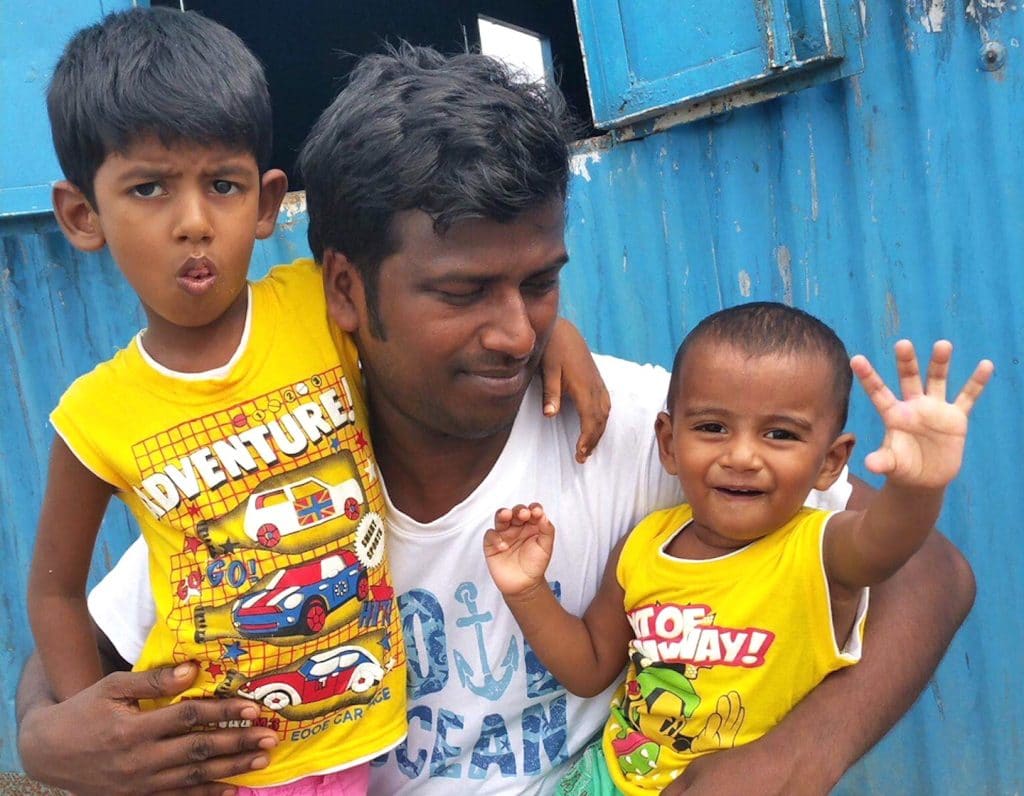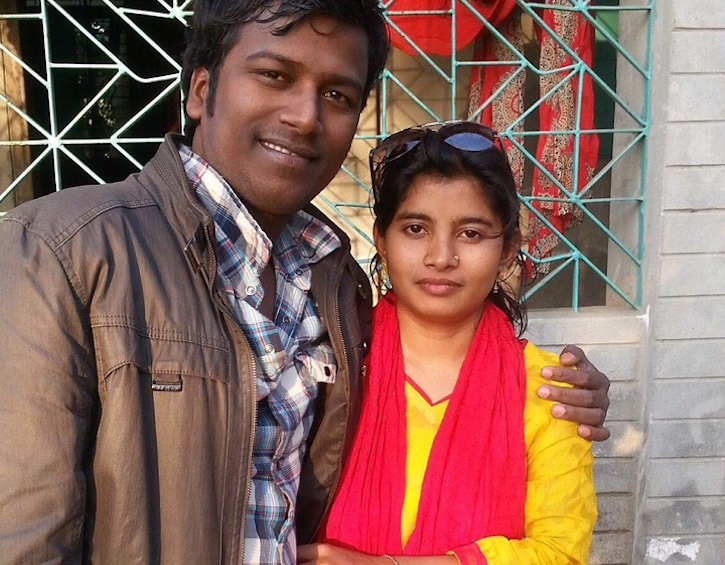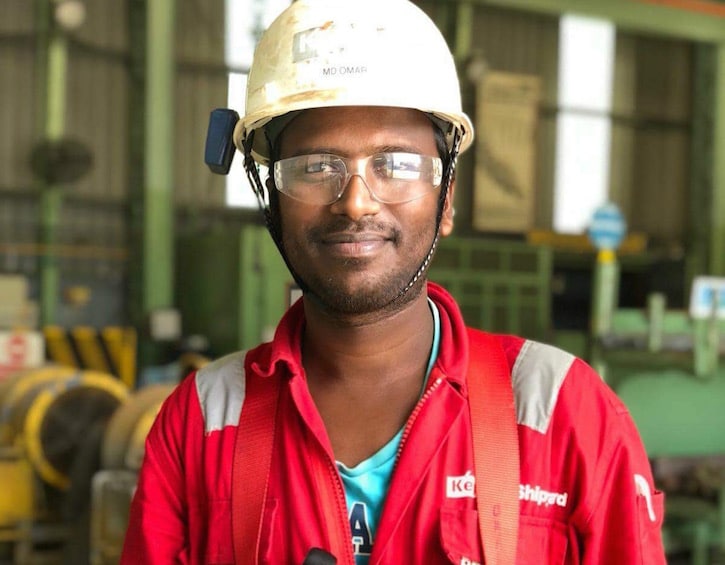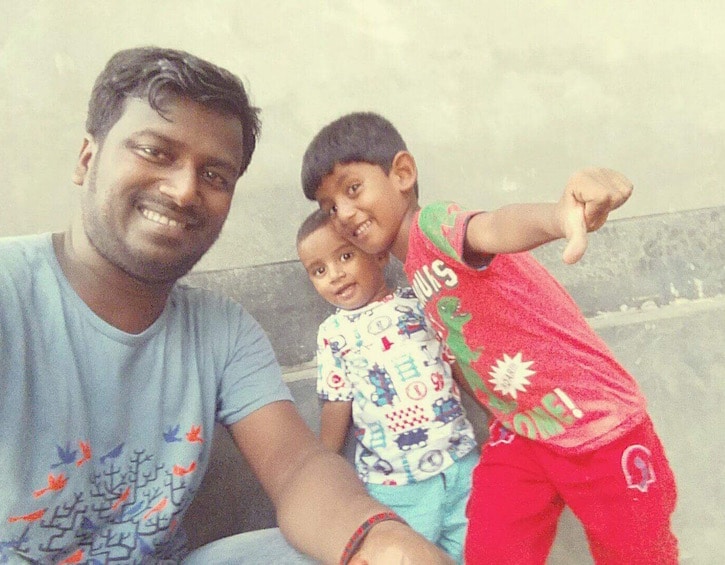




Let’s remember ALL fathers this Father’s Day, including the faraway fathers, those foreign or migrant workers that take the hard choice to work abroad to provide a better life for their family.
As Father’s Day approaches, Singapore Shipyard Senior Safety Coordinator M Omar Faruque Shipon shares a snippet of his life as a foreign worker in Singapore. Omar, who holds a degree in political science from the National University of Bangladesh, has lived in Singapore away from his family for over a decade. Omar runs the popular Facebook page Bangladeshi migrant workers in Singapore, which provides Bengali translations of important news, including MOH updates and local news stories and statistics to its 90,000 followers.
Every day after I return from my workplace I call home. Calling home to me means kidding with my kids, literally. They know what time to expect my phone call, so they will hold the mobile phone firmly and not let their mother touch it. If I speak to only one of my two boys, the other boy feels hurt, he knocks his head against the wall with tearful eyes, hence, I call them together.
Today, like other days, I make the call, but nobody answers. After trying a few times in a row, I become worried. Sweat droplets form on my forehead, fearing the unknown. My throat becomes dry as wood. This is not supposed to happen. Someone always picks up the call. In fact usually, when I am unable to call on time, my wife will call to complain: ‘Do you not have a wife, did you forget your wife?’


I then laugh and answer: ‘I was just about to call you. But you beat me to it.’
My wife once said: ‘Do you know that at the end of every work day, we always wait for you to return home safely.’
Now, there is no answer. But then I hear the message tone from my mobile phone and I see my wife has sent me a message.
‘I am in the hospital now, I cannot talk, Safi had an accident.’
After I read the message my phone falls from my hands. I do not have the power to hold the mobile. I am not even aware of the tears streaming from eyes. I want to run away to the boy at this very moment. After a while, my wife messages me again, this time she says I should not worry, there is nothing serious; he only broke his leg. But I struggle to believe my wife right now. My wife knows how much I love our boys, so she might just be consoling me. Maybe she lies to give me peace. So I call my friend, and ask him to go to the hospital to find out the real facts.
At moments like this, I feel so helpless as an expatriate father. My wife sends me another message, writing, ‘I have no money in my hand. The doctor says that he needs a lot of money.’
I immediately transfer some money to my wife and message her back: ‘Do not worry about the money. I’m sending as much as you need for better treatment.’
Then my friend calls me back from the hospital. ‘It is true it is not so serious, he only has a fractured leg. The doctor given him plaster and he should recover within a few days.’


My mind is still not calm. So I call my office manager and explain to him about the incident. He says, okay, you can go home for seven days. I still have one problem though, as I have no money to go home? When my roommates Russell and my colleague Akram learn about my plight, they agree to lend me some money. When I am preparing to go home, my wife calls me.
On the phone I hear my boy: ‘Dad, my leg is broken.’
Listening to him, tears start to flow from my eyes again. I feel so helpless, a faraway father. I say calmly: ‘Son, you will be fine.’
My wife takes the phone from my son. ‘There is not really a need to come home. It will take time for our son’s leg to recover. You know he always likes to go out with you when you are here.’
My wife disconnects the call without giving me a chance to reply. She is right. Last year when I went home on vacation, my younger son was always with me. When he saw me preparing to go out he asked his mother for his new shirt. When his mother asked why, he said ‘To go out with my father.’ Sometimes he couldn’t come out with me and he would start to cry loudly.


For his happiness I always kept him with me. Returning home is never quiet for me. He would sit with me and play with his favourite toys. My eldest son would come and say, ‘Dad does not love me, he loves Safi more.’
I laughed listening to him say that and hugged both of them close.
Sometimes if I would go out without my younger son, he would come and stand in front of me. He would tell me what clothes to wear, drag me out of the door and push shoes towards me. As if I knew nothing myself, I did everything according to his instructions and we laughed so much. My wife stood laughing too and said: ‘Look at your son’s activities, how much trouble do I have to cope with this when you go abroad again to work?’
So I think perhaps she is right, going home now is a bad idea, as my son will want to go out with his father even with his broken leg. So I decide I will go home later when the boy is healthy again.
Occasionally, I ask myself why two children like them, who are little princes, were born in the house of a simple man like me. They should have been born in a king’s house. Then, they would not have to miss their father all the time. I cannot meet their needs, I cannot be their playmate, I cannot live side by side with them when they are sick. But all my love is for them. I laugh when they smile, when they cry, I cry. They became a part of my body. I feel them with each breath.
Editor’s Note: This article was originally published in 2018, but we find it particularly poignant in light of the ordeal undergone by so many migrant workers in Singapore throughout the COVID crisis with many not able to see their families back home for the foreseeable future. This Father’s Day, take a moment to think about the hundreds of thousands of men who have come here to work and support their families. Please consider supporting migrant workers and their families by donating to charities like Transient Workers Count Too or ItsRainingRaincoats.
This article was especially written for Sassy Mama and has been translated from Bengali by Fazley Rubel from Migrant Library Singapore






 View All
View All





 View All
View All







 View All
View All




